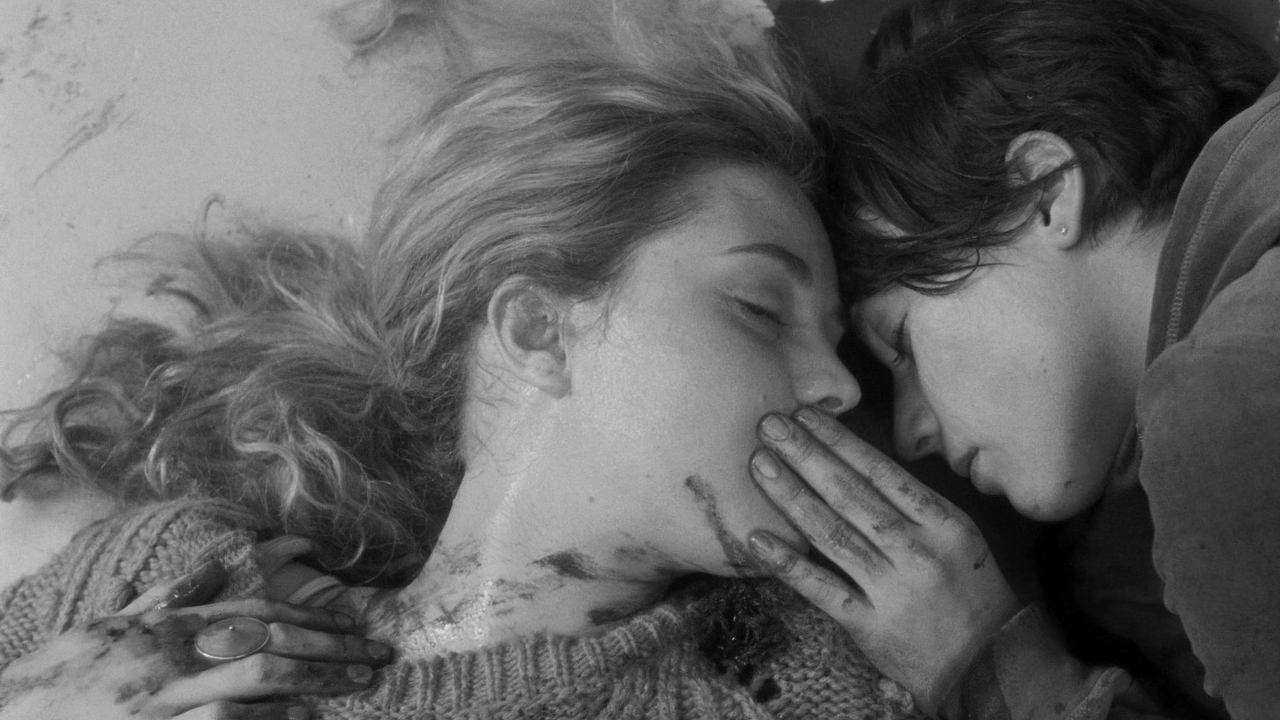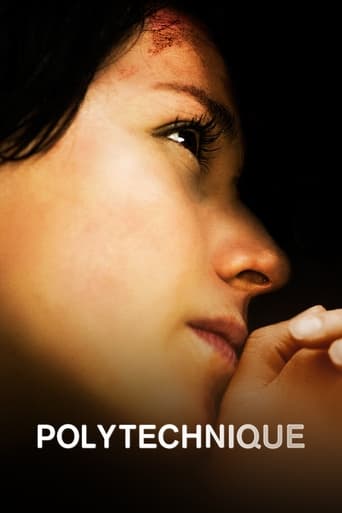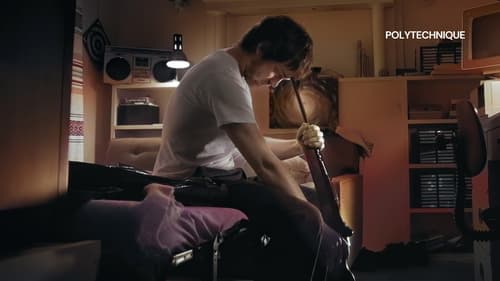



A Brilliant Conflict
Although it has its amusing moments, in eneral the plot does not convince.
View MoreIt's a mild crowd pleaser for people who are exhausted by blockbusters.
View MoreA film of deceptively outspoken contemporary relevance, this is cinema at its most alert, alarming and alive.
View MoreDenis Villeneuve is a bystander who fails to show the real workings from behind the scenes and adheres firmly to political correctness to avoid an uproar by sexist feminist hate groups. Independent studies reveal that girls torment and abuse others in different ways that are not even recognized by the current laws. The lack of public awareness on abuses by girls, allow such atrocities to continue beyond reproach. When bullies pick on loners in schools, they pay the price when the loner gets a weapon and hurts those girls who tormented him. A gang of girl bullies cornered and killed an Indian girl not too long ago. The world gets to see inside the minds of those involved, and pick out who is responsible and what part of the process that led to such a tragedy. Polytechnique avoids all of that. In fact, it is just an exercise in panning the camera about and never digging into the facts that is expected from a movie. It never goes beyond the information already provided by the news media, and even tells us less than what we already know. There was nothing gained by shooting it in Black and White, other than to give an amateur false sense of newsworthy material. It never mentions the Disturbing Misandrist Quebec society that fosters extreme bigoted Feminist hate and discrimination via Affirmative Action. The misandry is systemic and is completely entrenched in the education system which leads to more sexist misandrist hate and discrimination against men.Marc was the victim of intense hate and discrimination because Misandrist hate is so ingrained in Quebec society that everyone, including young girls, think that it is acceptable to hate and abuse men because men do not have the political voice to cry out when they are victimized and oppressed. There is not a single men's shelter in Canada and men are not recognized as victims under the current gender-biased sexist Feminist laws. At some point when the misandry is just too much to bear, the abused man will lash out and strike out against the feminist abusers to defend himself. Marc's pain and suffering was not recognized, and his feminist abusers were not exposed so they will be free to continue their abuse and discrimination under the protection of the sexist feminist misandrist laws. 4 men were shot at Polytechnique, but their suffering have been erased because under an abusive sexist feminist regime, men are not allowed to be victims, but must be held responsible. Girls are given absolute rights but are not required to be held accountable. Only girls get to hold the Victim Card.No one is allowed to speak out against the misandrist feminist tyranny without being silenced under such an oppressive Marxist regime. Larry Summers made such a mistake by speaking out, and he was silenced. Now Harvard University falls victim to the Feminist Communist oppression. Warning, you will walk away with the feeling that the movie was heavily censored and was an amateur attempt to evoke emotions, without providing known explanations for the misandrist backlash because of intense fear of political subterfuge from Feminist hate groups. The Polytechnique event is revealing and exposes feminism for its militant hate policies, but the misandrist truth is far too disturbing for the public to fathom. 20 years later, the disturbing feminist misandrist rampage has spread to little boys in elementary school. Only 32% of university students this year are men. The circle of bigoted feminist misandrist hate and oppression against men is complete, and paves the way for the Marxist Communist New World Order.girlwriteswhat on youtube said it nicely, Feminism is the destroyer of worlds, and the dumbest people will promote Feminism.
View MoreI've read many comments by people stating that this film is bias because it only reflects the point of view of the victims who were mainly female and that is just giving support to the feminist movement but that is not the case.This film isn't about the shooter, it isn't about the families...it's about the victims/survivors of this horrific ordeal. It does not focus on the background of the killer, it does not explain in great detail why he committed this terrible act of violence... it depicts what the victims/survivors went through.Some people tend to feel empathic for the shooter, commenting on the fact that he felt prosecuted for his gender and that he felt threatened and hatred for females who in his own opinion were taking jobs away from males who deserved them... Kind of like the two shooters from Columbine who to some people became a icon for anti-bullying, thinking that the only reason they committed these crimes was because they were prosecuted by their peers and the community. It doesn't change the fact that both the Columbine shooters and Marc Lepine took innocent lives and then so cowardly take their own.Some people liken this movie to "Elephant" and I agree but it also reminds me of "April Showers" since both movies did not focus on the killer but on the people who suffered through the event.
View MoreDenis Villeneuve's second feature film is a respectable and redeeming depiction of a true incident that occurred on the sixth of December in 1989 when a young man walked into a technical high school in Montreal and shoot fourteen female students before he pointed the gun at himself. In the suicide note he left behind, he called himself a rationalist who's had his life ruined by feminists.School tragedy's has happened more frequently in the United States, Germany and Finland than any other countries, and been documented by filmmakers such as Michael Moore, Gus Van Sant and Ilmar Raag. In Denis Villeneuve's dramatization of the massacre that occurred 21 years ago at Èscole Polytechnique in Canada, the story is seen from three different points of view and told from two contrasting voice-overs which represents both sides of the story. The Canadian director's use of non-linear narrative and persistent changes of pace gives this film the intensity one often experiences in thrillers, and with the hand-held camera movements, the abrupt takes and sound-mixing, Denis Villeneuve takes the viewer's straight into the minds of the characters who who represents the people who were involved in the incident."Polytechnique" is based on the survivors' stories and seen from the point of view of one perpetrator, one victim and one survivor. It's filmed in black-and-white and conveyed through a skilled film language which distances the viewer's from the emotional impact that a documentary might have had, something it manages to do without reducing it's credibility. With his reasoned and lyrical screenplay, Jacques Davidts gives life to the three central characters that where fictionalized in respect of the victims and the survivors of this horrible tragedy. These three characters are credibly portrayed by three good Canadian actors who makes this fictitious reconstruction of a tragic incident an authentic fictional film through their understated performances. What makes "Polytechnique" as good as it is, is that it early on drags it's focus away from the tragedy and dedicates as much time to what took place before and after, and even though it is strongest when it comes to the technical aspects and the narrative, this stringently structured film which deals with severe and controversial themes, is essentially an ode to the victims and the survivors of this horrible incident which unfortunately is only one of many similar incidents that are happening all over the world.
View MoreI was put off by one of the very first things you see in this film, which is a statement in which the filmmakers hope to have their cake and eat it too. They claim it's "based on a true story" but they then disrespect the families by saying all characters have been fictionalized. It's the ultimate disrespect to profit (via cash or fame) on the misfortune of others, while not even telling their story. We all know that far fewer people would have chosen to see this movie if it was titled "Gately College" or something.While I wasn't expecting a documentary, I was expecting something true to the facts. Now I'm left with the problem of figuring out whether anything in the film was true at all. Did we learn anything about the shooter? Did we learn anything about the victims? Did we learn anything about the responders? No.Having said that, it did contain some of the most intense shooting scenes I've seen in a film, and for some reason I was also struck by the images of trees. But I was not impressed by the self-indulgent upside-down camera angles.I think it probably is superior to Gus Van Sant's Elephant (Columbine) film, although it does follow in the same vein of being almost entirely devoid of content. If this is going to be the way that directors and writers depict traumatic mass murders, then they need to stop it.
View More